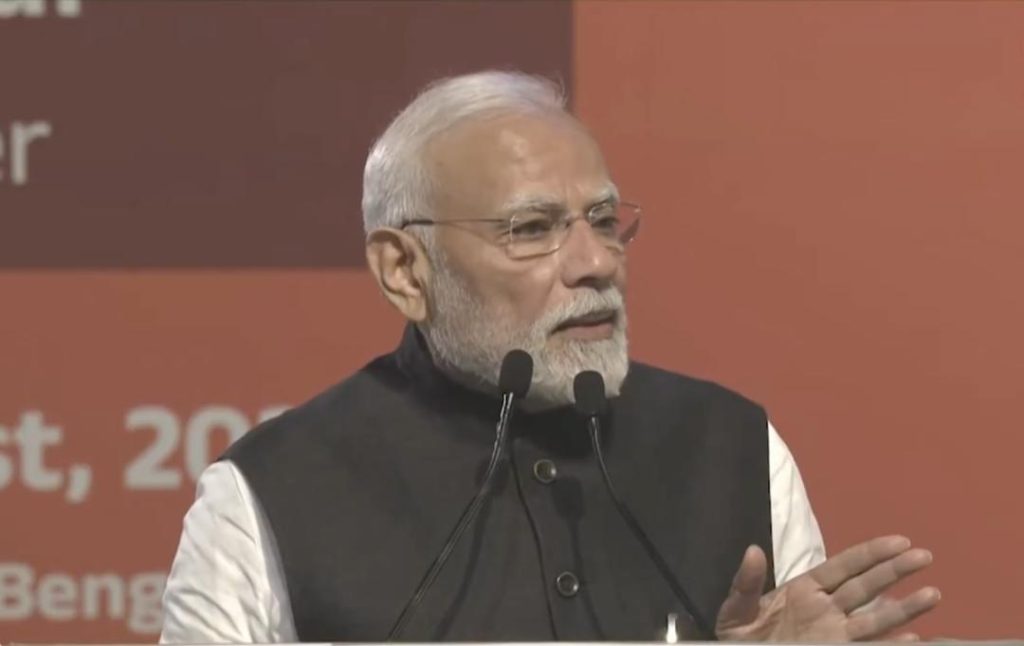
Bengaluru’s Yellow, Orange Metro lines to help 25 lakh people daily: PM
India’s Prime Minister Narendra Modi recently inaugurated the Yellow Line of Bengaluru Metro, marking a significant milestone in the city’s transportation infrastructure. The new line, which connects many important areas, is expected to cater to a massive 25 lakh commuters daily once the Orange Line is completed. In his inaugural address, the Prime Minister praised the companies that contributed to the project through corporate social responsibility (CSR) funding, terming their model as “inspirational”.
The Yellow Line, which spans 23.6 km, connects the Hesarghatta Road station in the north to the Rashtreeya Vidyalaya Road station in the south. The line passes through major commercial and residential areas, including the IT Corridor, Indiranagar, and MG Road. The Prime Minister highlighted the significance of this line, stating that it will connect many important areas and ease the daily commute of thousands of people.
However, the real game-changer is the Orange Line, which is currently under construction. The Orange Line will stretch 13.7 km from the Chikpet Station to the Anubhava Mantapa Station, covering areas like Basavanagudi, Kalasipalyam, and Chamrajpet. Once completed, the Orange Line will provide a direct link between the city’s north and south, revolutionizing the way people travel in Bengaluru.
The Prime Minister’s statement that the Orange Line will cater to 25 lakh commuters daily is a testament to the massive impact it will have on the city’s transportation system. Bengaluru, being the IT hub of India, is home to millions of people who commute daily to work. The city’s traffic congestion is a well-known issue, and the new metro lines are expected to provide a much-needed respite.
The Orange Line, in particular, will benefit the city’s residents and commuters in several ways. Firstly, it will reduce the travel time between the city’s north and south, making it more convenient for people to travel to work, school, or other destinations. Secondly, it will provide a reliable and efficient mode of transportation, reducing the reliance on private vehicles and mitigating the city’s traffic congestion.
The Prime Minister also acknowledged the role played by companies like Infosys, Biocon, and Delta Electronics in the project’s success. These companies contributed through part funding, demonstrating their commitment to giving back to the community. The Prime Minister praised their CSR model, stating that it is “inspirational” and sets an example for others to follow.
The Bengaluru Metro’s new lines are not only a boon for the city’s residents but also a symbol of the government’s commitment to developing the city’s infrastructure. The project’s success is a testament to the collaboration between the government, private companies, and other stakeholders.
In conclusion, the inauguration of the Yellow Line and the laying of the foundation stone for the Orange Line mark a significant milestone in Bengaluru’s transportation history. The new lines are expected to cater to a massive 25 lakh commuters daily, reducing travel time, and providing a reliable and efficient mode of transportation. The Prime Minister’s praise for the companies that contributed to the project’s success is well-deserved, and it is hoped that their CSR model will inspire others to follow suit.






